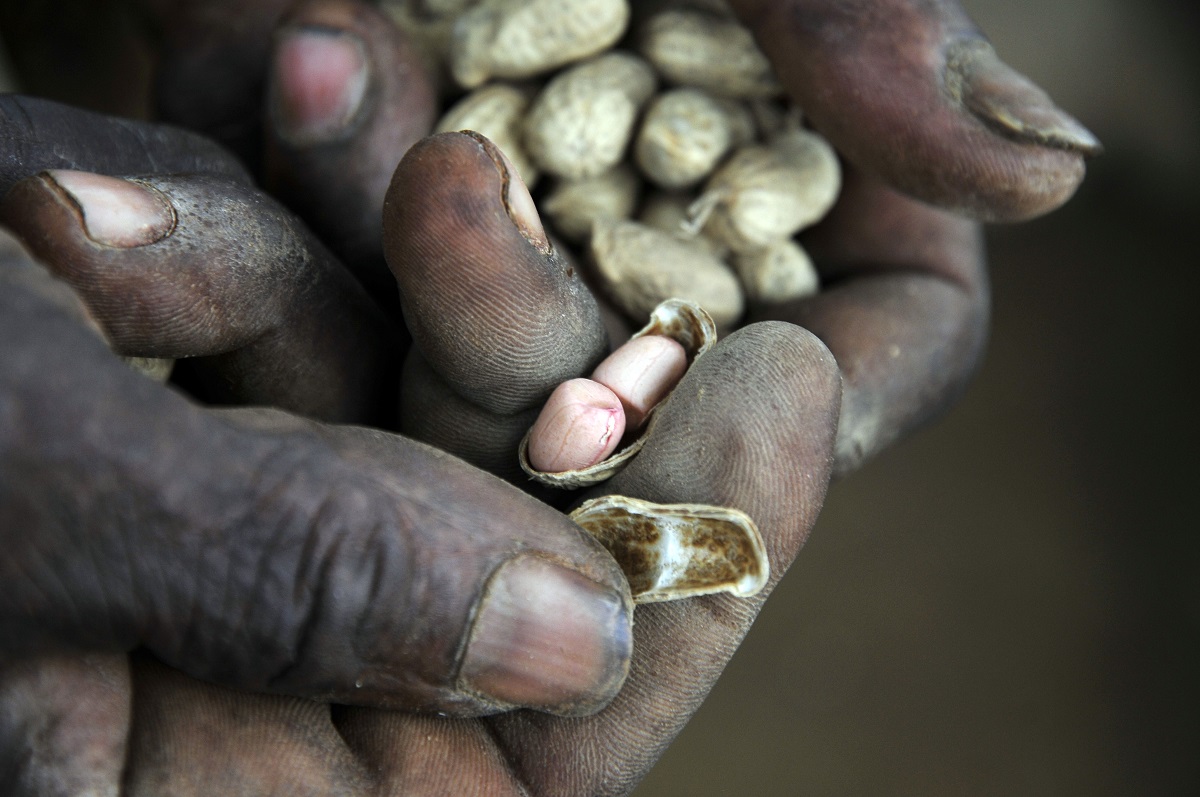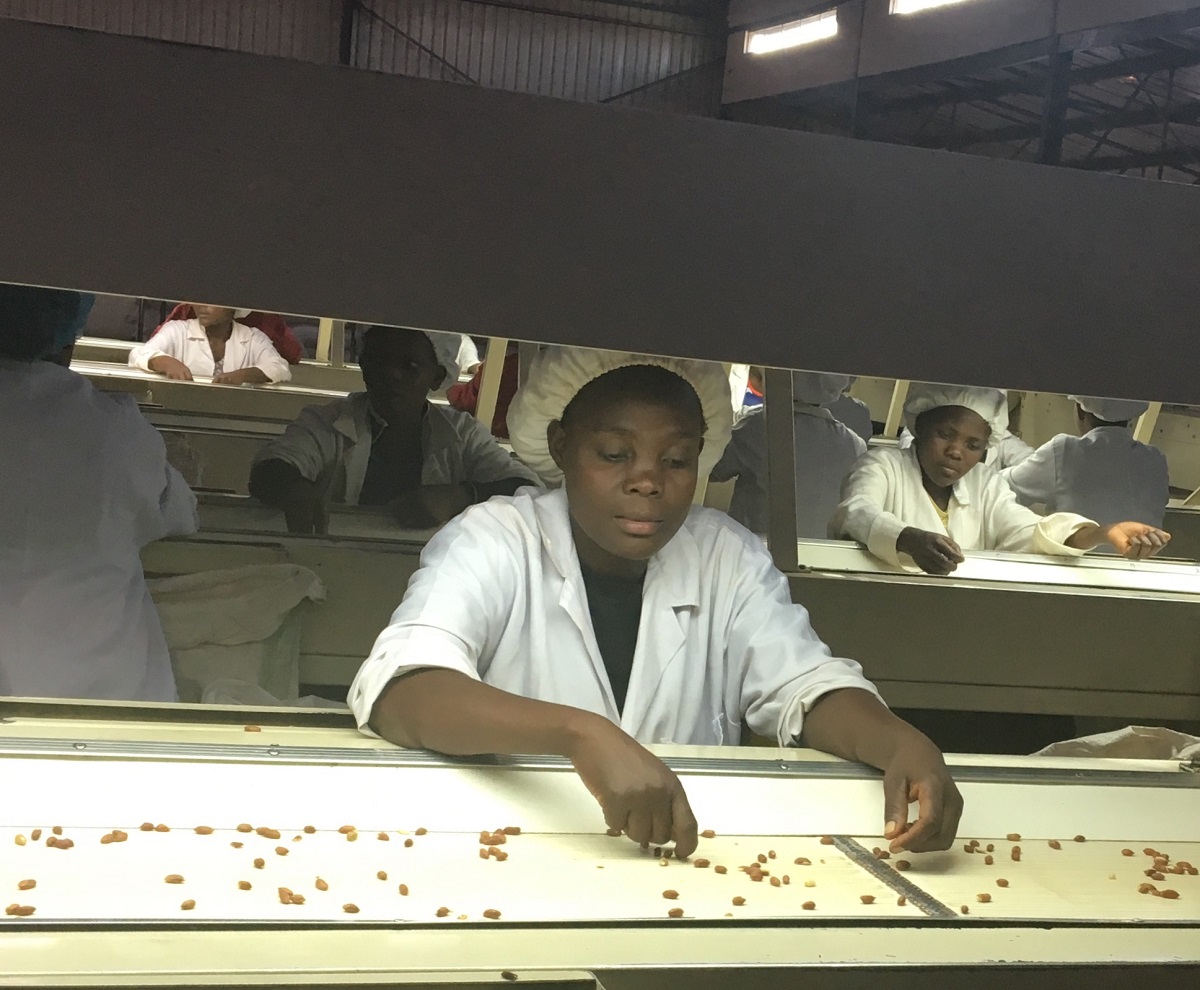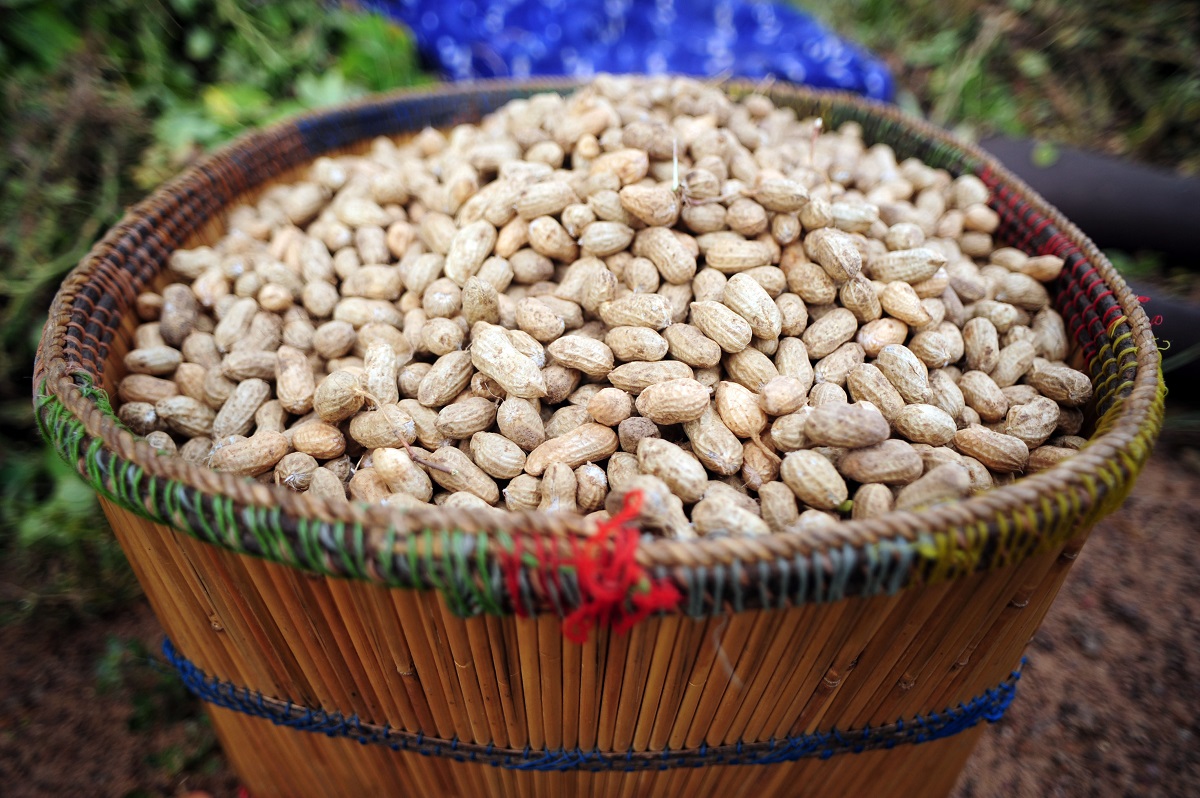An important food and export crop in Malawi and Zambia, groundnuts commonly carry dangerously high levels of aflatoxins, carcinogenic toxins which are very harmful to humans.
Aflatoxins, secreted in minute quantities by a fungus called Aspergillus flavus, contaminates groundnuts while they grow in the soil, and when farmers try to dry the nuts after harvest. Drought and rain increase the problem, especially for smallholder farmers who rely on the crop for food and incomes. Sun drying the groundnuts is often the only option for smallholder farmers – generally spreading them out on the soil where the fungus grows. Drought stresses the plant which makes it more susceptible to attack by the fungus, and rain during the crop drying period after harvest contributes to creating ideal climatic conditions for the fungus to grow. The risk to public health is also an issue when consumers eat untested products. These complex challenges particularly have an impact on small-scale farmers and poor consumers in low-income countries.
NRI has been involved in an initiative to identify how to improve pre-and-postharvest management of groundnuts, through the project ‘Stemming Aflatoxin pre-and-postharvest waste in the groundnut value chain (GnVC)’, which was set up as part of the PAEPARD programme. NRI has provided long-term support to the scientific team helping with research design, publishing results and interpreting conclusions to develop policy recommendations.
 Dr Bruno Tran, a Postharvest Scientist at NRI, stresses the importance of the study, explaining, “Aflatoxins are very expensive to detect and measure. Even tiny quantities can be very dangerous affecting children’s development and adults’ health. The risks of aflatoxins entering the food chain can be high. For countries like Malawi and Zambia, where some farmers are trying to grow lucrative export markets to the European Union and the USA, meeting the stringent aflatoxins standards is very difficult – very small quantities of damaged nuts can contaminate large shipments.”
Dr Bruno Tran, a Postharvest Scientist at NRI, stresses the importance of the study, explaining, “Aflatoxins are very expensive to detect and measure. Even tiny quantities can be very dangerous affecting children’s development and adults’ health. The risks of aflatoxins entering the food chain can be high. For countries like Malawi and Zambia, where some farmers are trying to grow lucrative export markets to the European Union and the USA, meeting the stringent aflatoxins standards is very difficult – very small quantities of damaged nuts can contaminate large shipments.”
The joint research work included reviewing traditional and improved production and postharvest farmer practices. Nine approaches used by farmers were scientifically tested and measured for their effectiveness in reducing levels of aflatoxins.
A key conclusion was that some of the techniques recently promoted actually increase the chance of aflatoxins contamination. Therefore, an important lesson for the different countries was that they should not simply adopt technologies that work in other counties without first testing them in local conditions.
‘Crop Protection,’ a leading global journal in the field, published findings from the research on the ‘Windrow’ and ‘Mandela Cock’ techniques used to dry groundnut in the field, after harvest. This paper, led by a researcher at the Lilongwe University of Agriculture and Natural Resources (LUANAR), Malawi, with support from the NRI, highlights the emergence of high-quality impact research from this multi-stakeholder partnership.
 Closing the project last week in Malawi, Professor Ben Bennett, Deputy Director of NRI, commented, “This research, which was with the participation of farmers really shows how young African agricultural researchers are leading the way in tackling the intractable problem of aflatoxin contamination and food safety.”
Closing the project last week in Malawi, Professor Ben Bennett, Deputy Director of NRI, commented, “This research, which was with the participation of farmers really shows how young African agricultural researchers are leading the way in tackling the intractable problem of aflatoxin contamination and food safety.”
The presence of aflatoxins in human food was first brought to the world’s attention in 1960, following NRI’s discovery of aflatoxin in animal feed as scientists responded to the unknown Turkey “X” disease. This led to a worldwide aflatoxins management programme. The lessons learned from this study are both an important advancement in supporting agricultural development and food safety of a staple crop to effectively manage levels of aflatoxin along the groundnut value chain in Malawi and Zambia, but also a model of collaborative African research supported by European research and funding instruments.
Funded by the European Union, PAEPARD provides small grants to consortia of African agricultural researchers who work with a European research partner. The GnVC project, started in 2015 and worked with the Zambian Agricultural Research Institute (ZARI), the Food Agriculture and Natural Resources Policy Analysis Network (FANRPAN), the National Smallholders Farmers Association of Malawi (NASFAM), Lilongwe University of Agricultural & Natural Resources (LUANAR), Malawi and the University of Greenwich’s Natural Resources Institute (NRI).
For more information, contact: Inderjit Dhooper, NRI Communications


